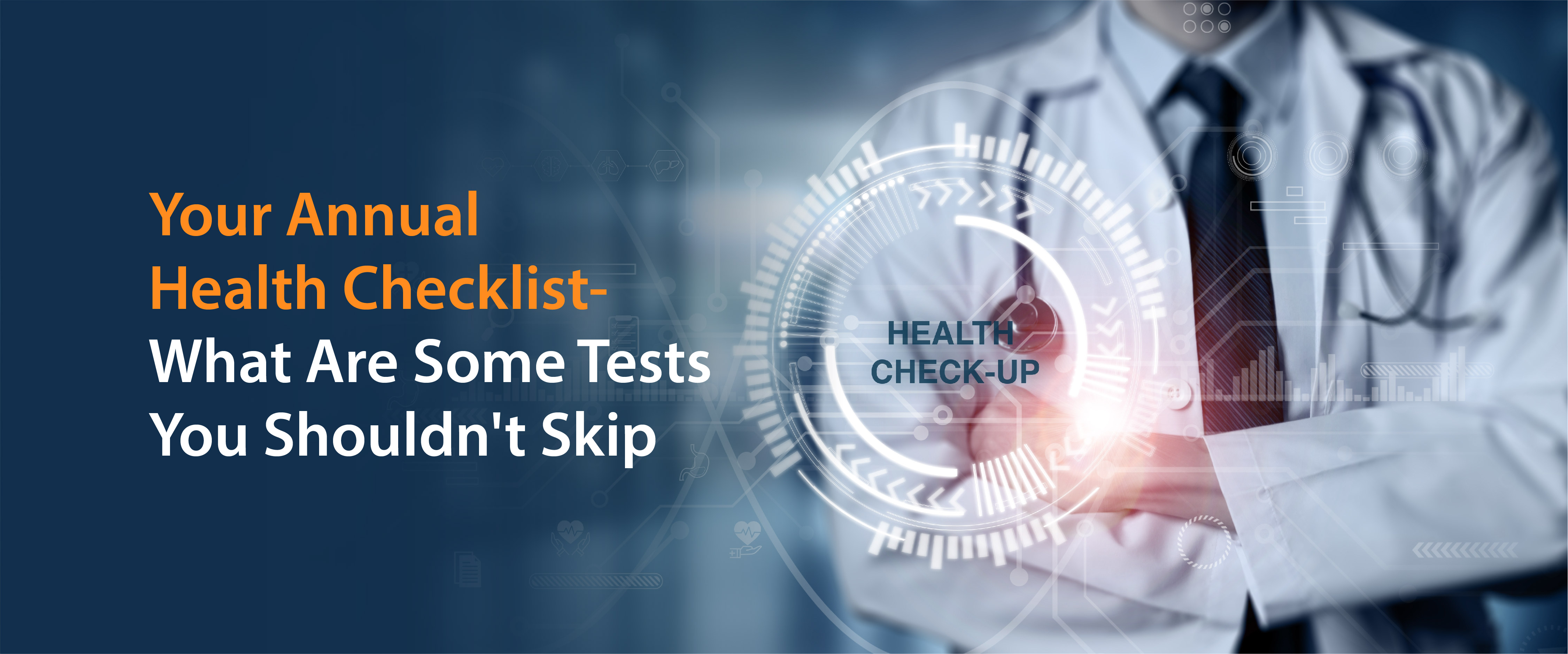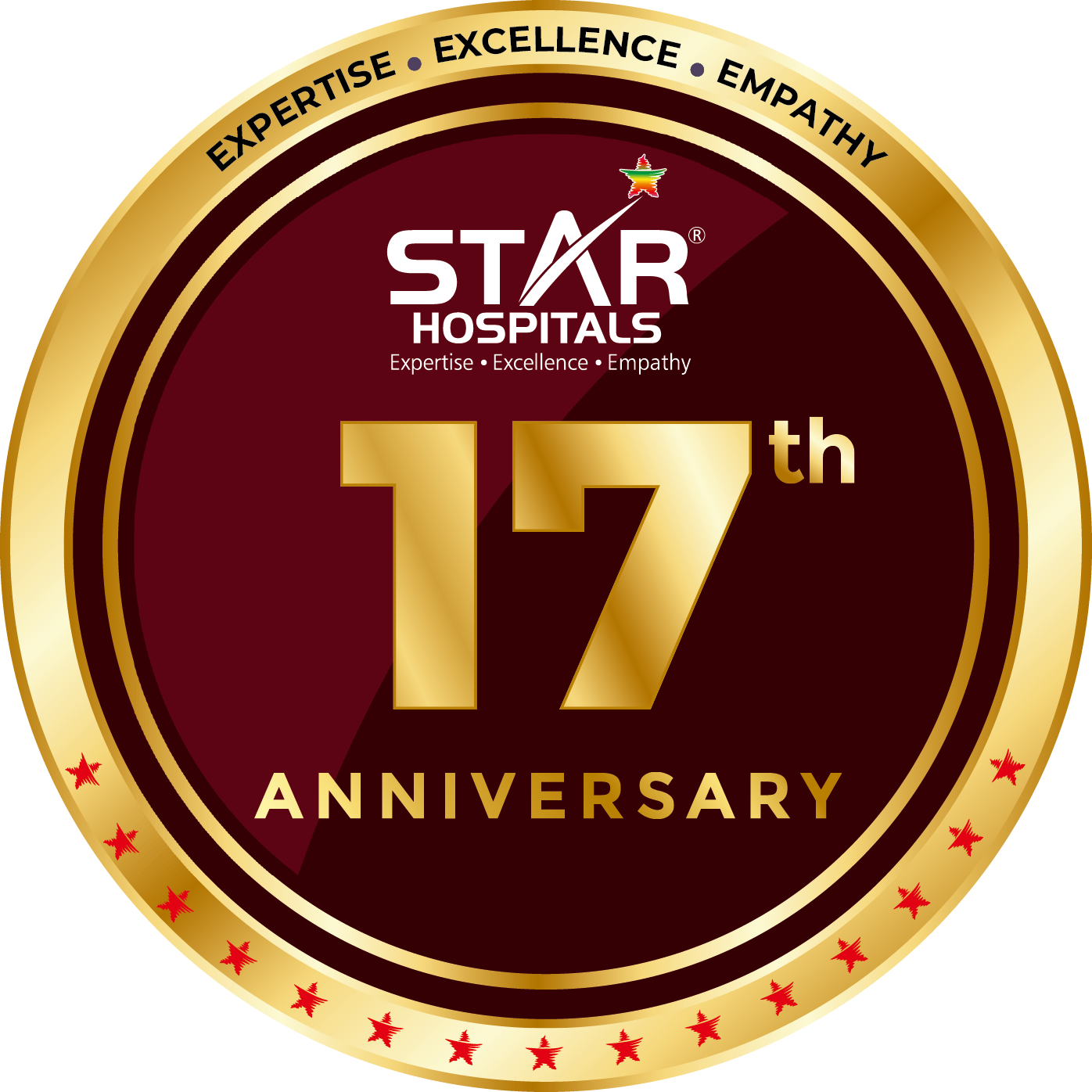Health- the most important, most coveted and most talked about topic in the world. The mindset these days is to have a healthy life, not necessarily a long one. To make sure that you are truly healthy, a regular health checkup is the way to go. Regular check-ups and testing can help identify issues before they arise and at an earlier stage, when treatment options and prospects of recovery are more favourable.
Benefits of Annual Health Checkups:
- Early detection of health issues:
The earlier the better is most applicable in the case of diseases. With annual checkups, you can ensure that you notice even minor changes in your body and do not miss out on the valuable time in your hands to act on them.
- Reduced risk of chronic diseases
With regular checkups, the risk of chronic diseases is reduced by a large degree. Timely intervention prevents the conditions from getting out of control and elicits quick responses.
- Long-term healthcare cost savings
The money that you may save on regular checkups is much less than the money you might have to spend on treating chronic health conditions if they are not identified on time.
What to Know About Health Checkups
Knowing what medical tests to take is very important. Also important is to be aware of what to do and not do on the day of the checkup. This includes avoiding certain foods, not drinking alcohol for 24 hours before the tests, and fasting for 8-12 hours before the checkup if required. A 6-8 hour sleep on the previous night of the checkup will ensure normal vital signs.
10 Vital Checkups That Are Required:
Here is a list of 10 checkups aimed at overall good health and wellness. If any abnormalities are reported in these tests, you may need to take other, more advanced tests to pinpoint the issue.
1. Complete Blood Picture/ Complete Blood Count (CBP/CBC):
Involves checking haemoglobin, platelets, White Blood cells, Red Blood Cell counts, along with sugar and lipids/cholesterol/triglycerides levels. CBC is done in labs by drawing a small amount of blood, which is later chemically tested. The result gives an overall idea about your general health, and also exposes undiagnosed conditions such as anaemia. CBC is also used to monitor the effect of ongoing treatments like chemotherapy on the body.
2. Complete Urine analysis: Also called urine routine test, this test comprehensively analyses the urine, including its appearance, chemical composition and microscopic elements. Urine tests are useful in diagnosing both infections and functional abnormalities in vital organs like the kidneys, liver, urinary tract, etc.
3. Kidney function tests:
A series of tests that check for abnormalities in the everyday functioning of the kidneys. This includes testing blood and urine samples, and sometimes using
Ultrasound, MRI or CT scans for imaging. Kidney Function test looks at the level of creatinine in blood and elements of sugar or blood in urine to detect abnormalities. Imaging tests help in diagnosing cysts or other structural abnormalities.
4. Liver function test:
This is a blood test that assesses the health and functionality of the liver. Usually, blood drawn from the vein in the arm is tested to assess the levels of enzymes and proteins associated with liver function. The test is highly helpful in recognising
chronic liver diseases early.
This is a non-invasive procedure where the electrical activity of the heart is monitored using electrodes attached to the chest, arms and legs. The signals are displayed in the form of a graph, which is read by the doctor to diagnose abnormalities, if any.
This is an imaging test using ultrasound that obtains an image of the heart and monitors its pumping activity. It is used to check for abnormalities in heart shape, valves, and overall pumping efficiency.
- Exercise Cardiac Stress Test:
Commonly called the Treadmill Test (TMT), this is a diagnostic procedure used to monitor the heart’s response to physical stress. Heart’s activity, including rhythm and blood pressure, and breathing and tiredness, is analysed during exercise on a treadmill or stationary cycle, to spot irregularities, if any.
Commonly called the Cholesterol test, this is a type of blood test where the different fats and lipids in the blood are measured. The lipid profile of the blood is obtained (Total, LDL and HDL cholesterol, triglycerides and VLDL cholesterol) and is used to identify and assess the risk of developing cardiovascular diseases like
heart attack and
stroke.
In this procedure, the blood vessels are visualised with the help of a special contrast agent (dye) injected into the bloodstream. The blood vessels visible through X-ray, CT or MRI Scans are closely watched to identify blockages or other abnormalities.
6. Thyroid/Endocrine function tests:
Any abnormalities in the everyday functioning of the endocrine system and thyroid gland are monitored by analysing blood samples. These tests look for abnormalities in hormones like TSH, T3 and T4, which could be due to an underactive (hypothyroidism) or overactive (hyperthyroidism) gland. Abnormalities in these hormones can be the reason for various irregularities in bodily activities.
7. Vitamin deficiency test:
Ensuring optimum levels of essential vitamins in the body is crucial for its normal functioning. Vitamin deficiency tests are done by analysing a sample of blood and is helpful in explaining many bodily conditions. The doctor may ask you to make changes in your diet or start taking supplements if any deficiency is identified. If the deficiency is due to structural or functional problems of the body, you may be asked to take medicines that support recovery.
8. X-rays and ultrasounds:
These are non-invasive imaging tests used to diagnose issues in the functioning of internal organs like the lungs, abdominal cavity and brain. An experienced medical practitioner would be able to identify any internal injury or functional abnormalities by looking at the images.
9. Dental checks: Routine monitoring of oral hygiene is more important than you think. It’s crucial to avoid infections or other complications by ensuring good health of teeth, gums and the oral cavity.
10. Eye test: An easy, one-time eye check-up helps in monitoring eye pressure, potential for developing glaucoma, and other corneal issues, which helps in timely intervention and preventive care.
These, by and large, cover most parts of the body. Depending on the age and health condition, the physician may prescribe other tests like bone density, cancer screenings, and STD tests. Prioritising these tests can help prevent major illnesses.
When to Start Regular Checkups?
A good age to start regular health care is when you enter your forties. The forties are a turning point in most people’s lives, irrespective of gender, when youth gives way to middle age and above. But if it feels necessary, you may get tests done before that, too. Preventive care is always the best care.
Final Thoughts
Whatever your health condition, it is a good option to take your health into your hands. Connect with a hospital near you or visit Star Hospitals for a comprehensive health check for a healthy future.
Star Hospitals is a multi-speciality facility with all state-of-the-art facilities, especially for general Health and Wellness. Star Hospitals recognise the importance of physical, emotional and mental wellbeing. They have seen constant growth and unwavering dedication from all their healthcare personnel, right from the senior-most Doctors/Surgeons to therapists to the nursing and caregiving staff. STAR Hospitals is committed not only to treatment but also to improving the quality of life of the patients.
Do not hesitate. Take charge of your health and life.
Book a test today and hop on for a healthy, happy journey of life.











